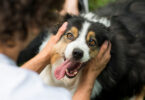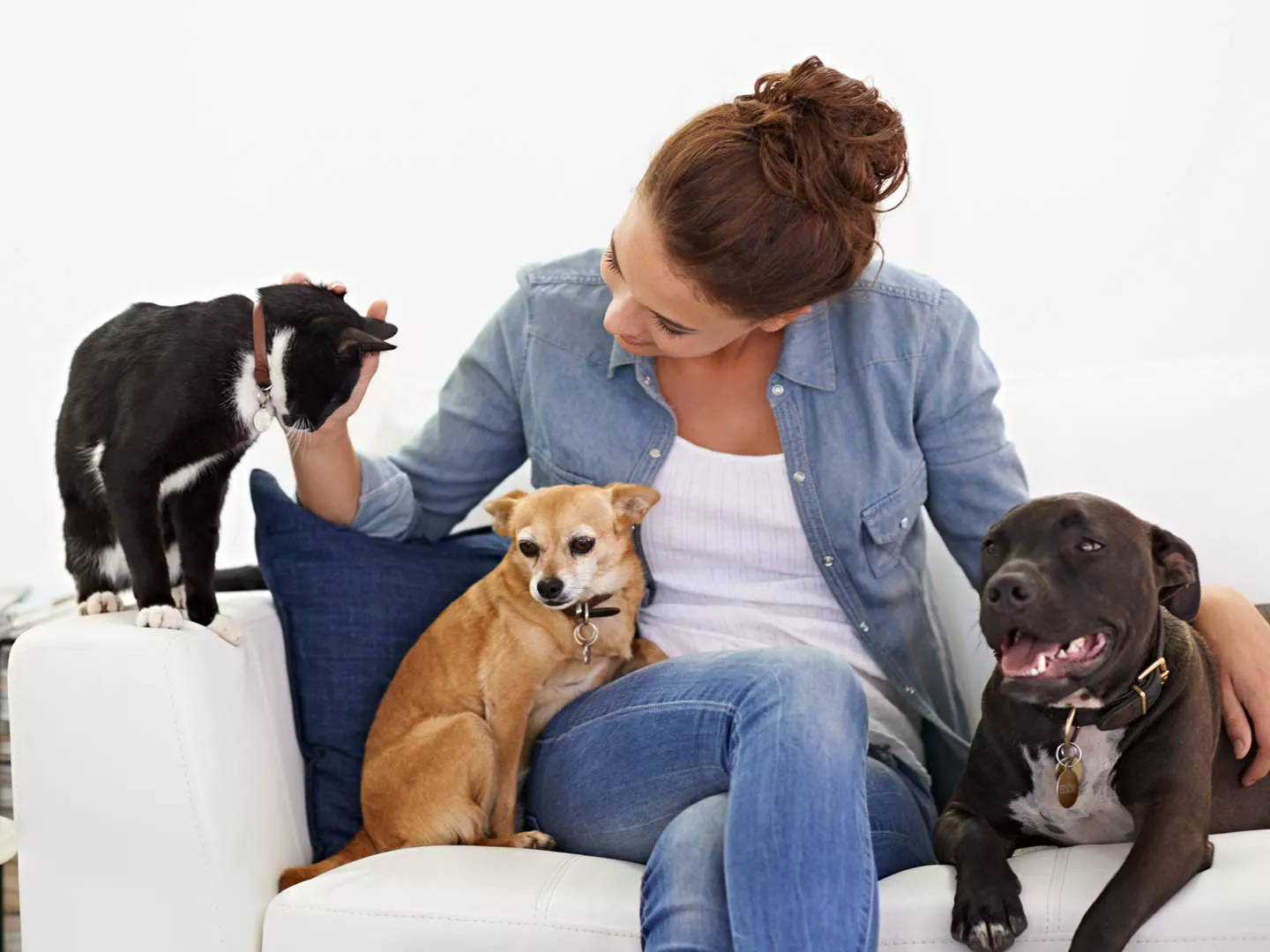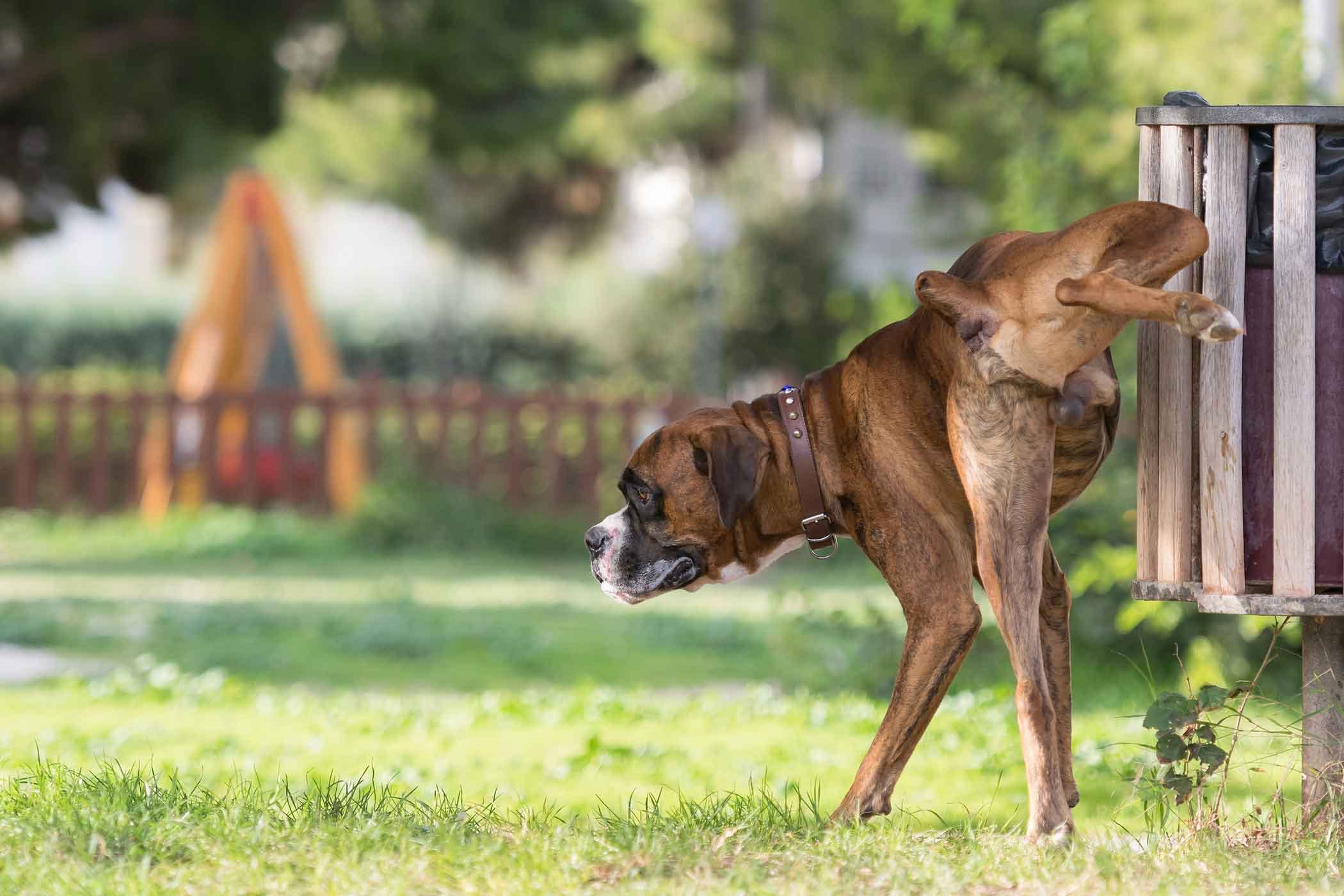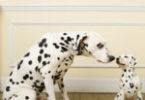Have you ever wondered which dog breeds are considered the most aggressive or dangerous? Are some breeds more aggressive than others, or is it just a myth? In this article, we explore 21 different breeds often cited as aggressive, examining whether these claims hold any weight or if they are simply media-driven misconceptions.
It’s important to remember that a dog’s aggressiveness is often more a product of its environment, training, and socialization than its inherent nature. Proper training and a positive environment can shape a dog’s behavior, regardless of breed. However, certain breeds tend to have characteristics that can make them more prone to aggression if not managed properly.
21. Dachshund
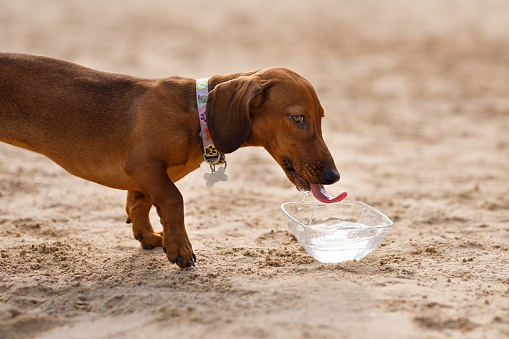
The Dachshund, affectionately known as the “wiener dog,” is a small yet brave breed with a big personality. Originally bred to hunt small game, particularly burrowing animals like rabbits and badgers, they possess a high prey drive and a strong sense of determination. Despite their small stature, Dachshunds are fearless and often think of themselves as much larger than they are, making them incredibly bold and confident.
Dachshunds are also known for being highly independent and occasionally stubborn. Their intelligence makes them quick learners, but they can be a challenge to train due to their independent nature. Owners should be patient and consistent in their approach, as Dachshunds may not always respond to commands immediately. Proper socialization and obedience training from an early age are essential to curb any territorial or aggressive tendencies.
Despite their feisty behavior, Dachshunds are affectionate and bond closely with their families. They tend to be loyal and protective, and they love being around their human companions. However, due to their strong prey drive, it’s important to monitor them around smaller pets. With the right training and socialization, Dachshunds can make wonderful companions in households that understand their personality.
20. Akita
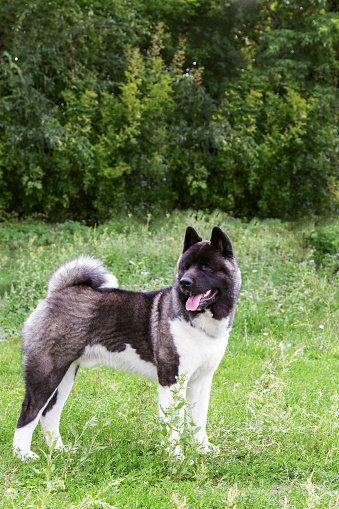
The Akita is a large and powerful breed that is known for its strength, loyalty, and independent nature. Originally from Japan, Akitas were bred to hunt large game like bears, boars, and deer. This history of hunting has contributed to their strong protective instincts and sometimes aloof demeanor with strangers. Akitas are naturally territorial and may display aggressive behavior if they feel their home or family is threatened.
While Akitas can be wonderful companions, they require an experienced owner who can provide firm leadership. Without proper training and socialization, Akitas can become dominant and possessive, especially around other dogs of the same sex. Early socialization with other animals and people is essential to prevent aggressive tendencies. Despite their strong-willed nature, Akitas are known for their loyalty to their families and can be gentle and affectionate with those they trust.
Because of their size and powerful nature, Akitas need plenty of exercise and mental stimulation. A daily walk, playtime, and obedience training will help keep them happy and healthy. When raised in a proper environment with consistent training, Akitas can be loving, protective, and devoted companions, making them an excellent choice for experienced dog owners.
19. Bullmastiff

The Bullmastiff is a massive, muscular breed that was originally bred to guard estates and protect against poachers. With their intimidating size and natural guarding instincts, Bullmastiffs are often associated with aggression, but in reality, they are gentle giants. They are known for being calm, affectionate, and protective of their families, but their size can make them potentially dangerous if not properly trained or socialized.
Bullmastiffs require firm, consistent training to avoid becoming overly protective or territorial. They are very loyal to their family members and are typically good with children. However, they can be wary of strangers and may not always be the best fit for households with unfamiliar visitors or other pets. Early socialization and exposure to various environments can help curb any possessive tendencies they may develop.
While Bullmastiffs may appear intimidating, they are generally laid-back and non-aggressive if they receive the proper training and care. They do best in homes with experienced owners who are willing to invest time in their training and exercise needs. With the right leadership, Bullmastiffs are loving companions who will protect their families with loyalty and devotion.
18. Labrador Retriever

The Labrador Retriever is one of the most popular dog breeds worldwide, known for its friendly, outgoing nature and strong work ethic. Labradors are often regarded as the ultimate family dog due to their gentle temperament, intelligence, and eagerness to please. They make great pets for households with children and are known for their patience and loyalty. However, despite their generally friendly disposition, Labs can show aggression if they are not properly socialized or trained from an early age.
Labradors are highly trainable and excel in various roles, from service dogs to hunting companions. They thrive in active environments and need regular exercise and mental stimulation to stay happy. Without proper outlets for their energy, Labradors can become bored and exhibit undesirable behaviors, such as chewing or digging. Therefore, they require owners who can commit to providing them with sufficient exercise and mental challenges.
While Labradors are typically very friendly and tolerant, their size and strength can make them potentially dangerous if not properly controlled. Proper training, early socialization, and clear boundaries are essential for this breed. With the right environment and care, Labradors are loving, loyal companions who make excellent pets for families of all sizes.
17. Saint Bernard
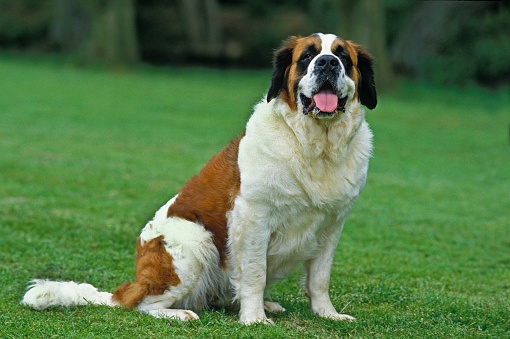
The Saint Bernard is a giant dog breed originally bred for rescue work in the Swiss Alps. They are known for their impressive size, gentle nature, and iconic role in saving lives during avalanches and snowstorms. Despite their massive stature, Saint Bernards are usually calm, friendly, and affectionate, making them great companions for families. However, their size can sometimes lead to accidents, especially in households with small children.
While they are typically good-natured, Saint Bernards require proper training and socialization to prevent any territorial or protective behavior. Due to their size, they need plenty of space to move around and would not be comfortable in small apartments. They also need regular exercise, but it’s important to avoid over-exerting them due to their predisposition to joint issues as they age.
Saint Bernards are often regarded as gentle giants, but their size and strength can be overwhelming for inexperienced dog owners. A well-trained and properly socialized Saint Bernard can be a loving, protective, and loyal family member. Their affectionate nature makes them ideal companions for those who can manage their needs and provide them with the space and exercise they require.
16. Rhodesian Ridgeback
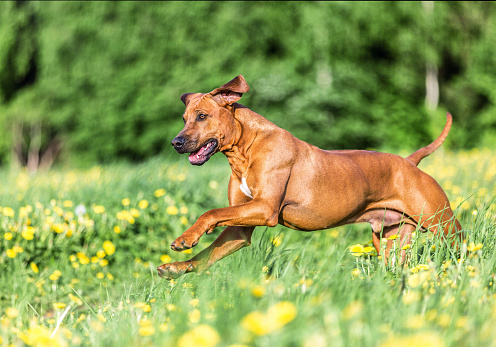
The Rhodesian Ridgeback is a strong, athletic breed known for its distinctive “ridge” of hair running along its back. Originally bred to hunt lions in Africa, the Rhodesian Ridgeback is a courageous and independent dog with a high prey drive. They are intelligent and loyal, but their hunting background means they may be more likely to chase smaller animals, making early socialization and training essential.
While they are protective and can be territorial, Rhodesian Ridgebacks are typically calm and gentle with their families, particularly when raised in a stable environment. They are known to be independent thinkers, so training them requires patience and consistency. These dogs are best suited for experienced owners who can provide them with the mental and physical stimulation they need to thrive.
Although Rhodesian Ridgebacks can be somewhat aloof with strangers, they are generally good with children and other pets if they are properly socialized. Their calm demeanor and strong bond with their family make them excellent companions. However, due to their independent nature, they require an owner who can assert themselves as the leader of the household.
15. Shiba Inu

The Shiba Inu is a small, agile dog breed from Japan, known for its fox-like appearance and spirited personality. Shiba Inus are independent and strong-willed, which can make them challenging to train. Their tendency to be somewhat aloof and territorial means that early socialization is crucial to ensure they are well-behaved around other animals and strangers.
Shiba Inus are intelligent dogs, but they are not always motivated by food or praise, making them somewhat stubborn in training. They are also known for their high energy levels and need for regular exercise. Without sufficient physical and mental stimulation, Shibas can become destructive or overly vocal. Therefore, they are best suited for experienced dog owners who understand their temperament and can provide a structured environment.
Despite their independent nature, Shiba Inus are loyal and affectionate with their families. They bond closely with their owners and can be very loving, but they may not always show this affection in the way that other breeds do. They are highly protective of their home and family, which can lead to territorial aggression if not properly managed. With proper training and socialization, Shibas can make excellent companions.
14. Doberman Pinscher

The Doberman Pinscher is known for its sleek appearance, loyalty, and protective nature. This breed was originally developed in Germany by a tax collector named Karl Friedrich Louis Dobermann, who wanted a dog that could protect him while he collected taxes. Dobermans are intelligent, energetic, and very trainable, making them excellent working dogs in various roles, such as police and military work. However, their protective instincts can make them potentially aggressive if they aren’t raised with proper socialization.
Dobermans require an experienced owner who can provide firm, consistent leadership. Without proper guidance, a Doberman may become possessive or territorial, especially if not properly socialized with other animals or people. Regular training, mental stimulation, and daily exercise are essential to prevent unwanted behaviors. Their high energy levels make them ideal for active households that can provide plenty of physical and mental challenges.
While they are often portrayed as aggressive in media, Dobermans are actually known to be affectionate and loyal to their families. When trained and socialized properly, they make excellent companions, often forming deep bonds with their owners. Their natural instincts make them excellent guard dogs, but they can also be gentle and playful when raised in a loving environment with clear rules and boundaries.
13. Dogo Argentino
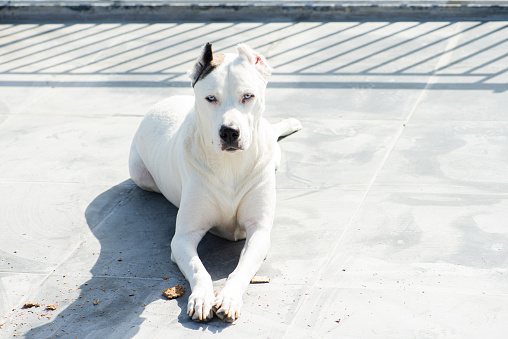
The Dogo Argentino is a powerful, muscular breed originally developed in Argentina for big-game hunting, including wild boars and pumas. These dogs are fearless and highly protective of their families, which makes them excellent guard dogs. However, because of their size and strength, Dogo Argentinos can be dangerous if not properly trained, socialized, and exercised. Their strong prey drive also makes them less suitable for homes with smaller pets.
Due to their high energy levels and protective nature, Dogo Argentinos require a confident and experienced owner who can establish clear leadership. They need early socialization with people and other animals, as they can be territorial and aggressive without proper exposure. Positive reinforcement and consistent training are key to raising a well-behaved Dogo Argentino.
Despite their intimidating appearance, Dogo Argentinos are known for being affectionate and gentle with their families, especially when raised with proper care. They tend to form strong bonds with their owners and are often described as being very loyal and protective. However, their size and strength mean that any aggression, even if unintentional, can cause significant harm, so they require responsible ownership.
12. Boxer
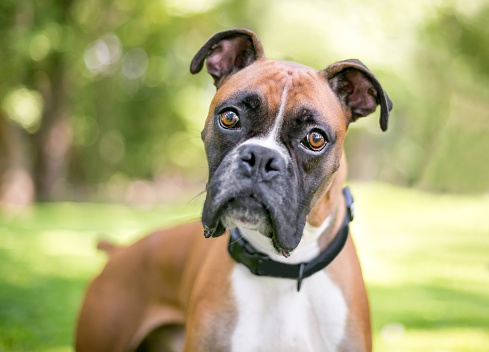
The Boxer is a playful and energetic breed that is well-known for its affectionate nature and strong protective instincts. Originally bred to be working dogs, Boxers are highly intelligent and can excel in various roles, such as search-and-rescue or as guard dogs. They are typically very friendly and loyal, but their exuberance and protective nature can sometimes result in aggressive behavior, especially if not socialized properly or if they perceive a threat to their family.
Training a Boxer requires consistency, patience, and an experienced handler, as their high energy and independent nature can make them a bit of a challenge. They thrive in households where they can receive a lot of attention, exercise, and mental stimulation. Boxers are known for being particularly good with children and other family pets when raised in a positive environment, but their territorial nature can cause them to act aggressively if not properly managed.
While Boxers are generally friendly and affectionate, they are also known for their protective instincts. If they sense a threat to their family, they can become aggressive in defending them. Early socialization, positive reinforcement, and sufficient exercise are essential to maintaining a well-behaved Boxer. When raised in a loving, structured environment, Boxers make wonderful, loyal family companions.
11. Bull Terrier
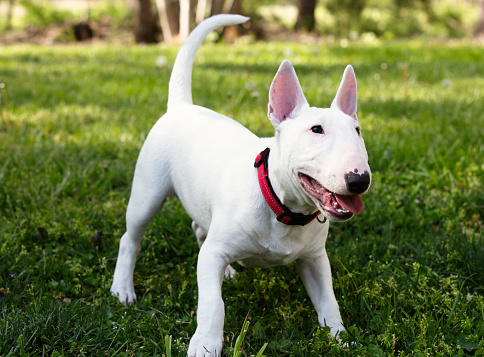
The Bull Terrier is an energetic and playful breed known for its distinct egg-shaped head and muscular build. They were originally bred for bull-baiting and later as companion dogs. Bull Terriers are known for their independent and strong-willed personalities, which can make them challenging to train, especially for first-time dog owners. However, they are also affectionate, loyal, and playful when properly socialized and trained.
Bull Terriers have a strong prey drive and may display aggressive behavior if not given proper training and socialization from a young age. Without sufficient exercise and mental stimulation, they can become destructive and difficult to manage. Early socialization with other dogs and people is essential to curb any territorial or aggressive behavior. Bull Terriers need a confident and consistent owner who can provide them with the structure they require.
Despite their tough appearance, Bull Terriers can be loving and playful with their families. They are known to form strong bonds with their owners and often seek out attention and affection. Their loyalty and protective nature can make them excellent family dogs, but they require an experienced owner to help guide them and ensure they receive the proper training.
10. Wolfdog
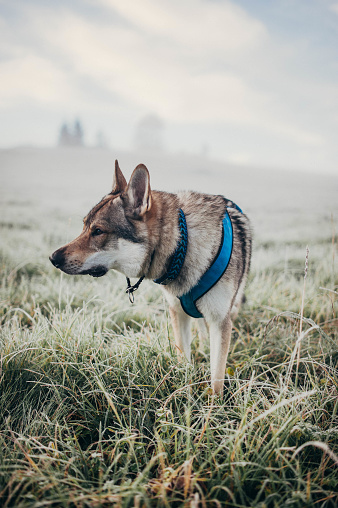
A Wolfdog is a hybrid breed, the result of mating a domestic dog with a wolf. Due to their wild ancestry, Wolfdogs retain many characteristics of wolves, including a high prey drive, independence, and territorial behavior. They are not recommended for first-time dog owners due to their complex needs and unpredictable behavior. Wolfdogs require an experienced handler who can provide them with the right environment and training.
These dogs are known for being very independent, often exhibiting wolf-like behaviors such as howling, stalking, and hunting. They can be difficult to train because they tend to be less motivated by human commands and may not always respond to traditional training methods. Proper socialization and training from an early age are essential to prevent aggression and territorial behavior. A Wolfdog’s natural instincts may also make them unsuitable for homes with smaller pets.
Although Wolfdogs can be wild and unpredictable, they can also be incredibly loyal to their families. When raised in a structured, well-trained environment, they can make excellent pets for experienced dog owners. However, their strength, intelligence, and wild instincts require dedicated training and a large, secure space where they can express their natural behaviors safely.
9. Siberian Husky
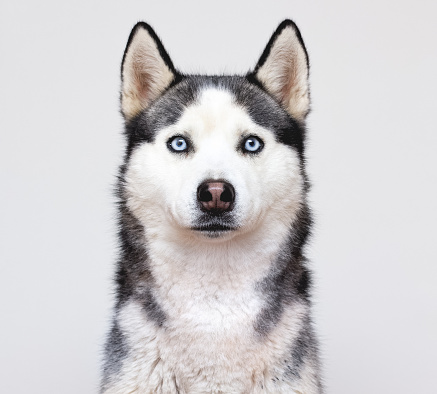
The Siberian Husky is a highly energetic, independent, and playful breed that was originally bred to pull sleds in harsh Arctic conditions. Known for their striking blue eyes and thick, double-layered coat, Huskies are friendly and social dogs, but their independent nature and strong prey drive can make them challenging to manage, especially in households without a secure fence or experienced owners.
Siberian Huskies require a significant amount of exercise and mental stimulation. Without proper outlets for their energy, they can become destructive, digging up gardens or chewing furniture. Although they are generally good with children and other pets, their high prey drive means they may not be trustworthy around smaller animals unless properly trained and socialized from a young age.
While Huskies are often described as friendly and good-natured, they can be prone to aggression if they feel threatened or are not properly socialized. Their independent and stubborn nature can make training a challenge, so early socialization and consistent, positive reinforcement are key. With the right training and environment, Huskies can be loving, loyal companions, but they require active, dedicated owners who can meet their physical and emotional needs.
8. Rottweiler
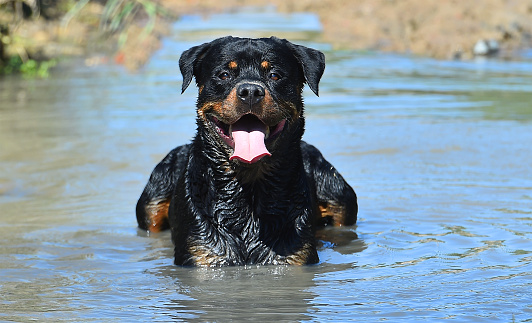
The Rottweiler is a powerful, muscular breed that is known for its loyalty, intelligence, and protective instincts. Originally bred to herd cattle and guard property, Rottweilers are naturally territorial and can be aggressive if not properly socialized or trained. However, when raised with clear boundaries and consistent training, Rottweilers are gentle giants that are affectionate and protective of their families.
Rottweilers require experienced owners who can provide firm and consistent leadership. If not trained properly, they may become dominant and territorial, which can lead to aggressive behavior. Socialization from an early age is essential to ensure they are comfortable around other dogs, people, and pets. Despite their intimidating appearance, Rottweilers can be affectionate, playful, and good with children when raised in a well-structured environment.
Their natural guarding instincts make Rottweilers excellent watchdogs, but these instincts can also lead to aggressive behavior if not properly channeled. With the right training, Rottweilers are loyal, protective, and loving companions. They are best suited for families who can provide them with consistent training, exercise, and the leadership they need to thrive.
7. Cane Corso
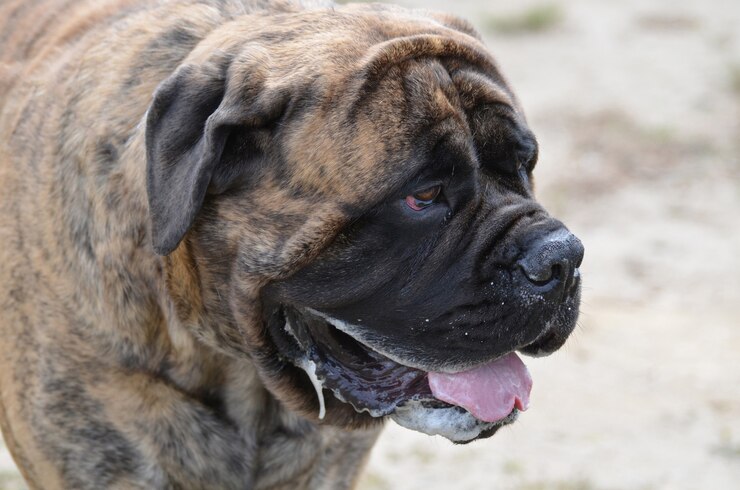
The Cane Corso is a large, muscular dog breed that was originally used for guarding property and livestock. Known for their imposing appearance, Cane Corsos are also known for their intelligence, loyalty, and strong protective instincts. These dogs are naturally wary of strangers and can be aggressive if they feel their family is in danger. However, with proper training and socialization, they can be calm and loving with their families.
Cane Corsos are strong-willed and independent, making them a challenge to train for inexperienced owners. They require a confident, experienced handler who can provide them with firm boundaries and consistent training. Early socialization is essential to ensure they are comfortable around other animals and people, as their territorial nature can lead to aggression if not managed properly.
While Cane Corsos are often seen as aggressive due to their protective instincts, they are usually affectionate and devoted to their families. They are very loyal and protective of their loved ones and can be excellent family dogs when raised in a structured environment. Their strength and protective nature require responsible ownership, but when properly trained, they can make wonderful companions.
6. Chow Chow
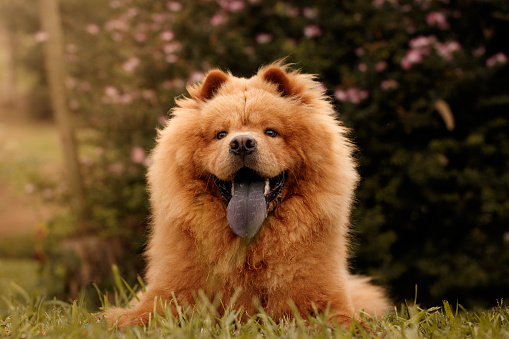
The Chow Chow is a unique and ancient breed with a distinctive lion-like appearance and a strong, independent personality. Known for their aloof nature, Chow Chows are often reserved with strangers and can be territorial. This breed is not typically known for its social nature, and without proper training and socialization, they can become aggressive or overly protective of their home and family.
Chow Chows are intelligent dogs, but they are also independent and can be quite stubborn. They require consistent, patient training, and their owners should establish clear leadership. Early socialization is essential to ensure they are comfortable around other animals and strangers. While they may not be as outgoing as other breeds, Chow Chows are deeply loyal to their families and tend to form strong bonds with their owners.
Although Chow Chows can be aloof and sometimes aggressive, they are generally calm and quiet in the home. Their strong protective instincts make them excellent watchdogs, but these instincts can also make them territorial. With proper training, socialization, and boundaries, Chow Chows can be loving and loyal companions for those who understand their unique nature.
5. Great Dane
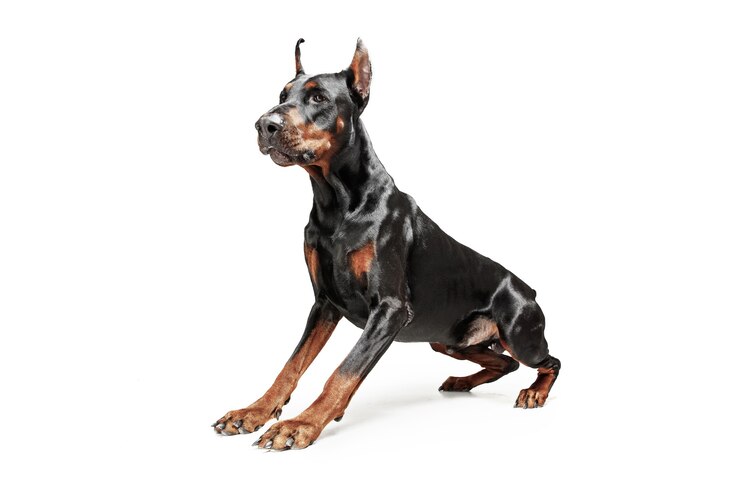
The Great Dane is one of the largest dog breeds, known for its impressive size, gentle nature, and friendly personality. Despite their intimidating stature, Great Danes are typically calm, affectionate, and friendly dogs that are well-suited for family life. They are often referred to as “gentle giants” because of their sweet and patient demeanor, especially around children.
Great Danes require a spacious living environment due to their size, and they need regular exercise to keep them healthy and happy. Their large size can make training a bit more challenging, but they are generally eager to please, which makes them easier to train compared to other large breeds. Consistent training and socialization from a young age are essential to ensure they behave well around other animals and people.
Although Great Danes are typically gentle and affectionate, they are also known for their protective instincts. They make excellent guard dogs due to their imposing presence and loyalty to their families. However, their affectionate and friendly nature means they are usually not overly aggressive unless they feel their family is threatened. When raised in a loving, structured environment, Great Danes are loyal, devoted companions.
4. German Shepherd
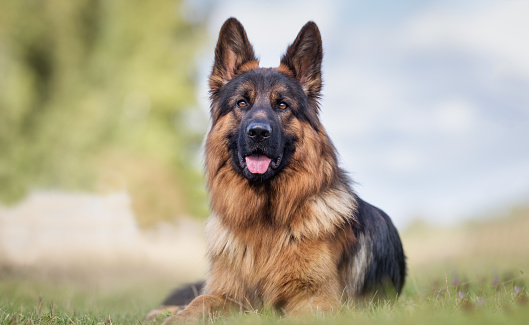
The German Shepherd is one of the most popular and versatile dog breeds worldwide. Known for their intelligence, loyalty, and protective nature, German Shepherds excel in various roles, such as working dogs in police, military, and search-and-rescue operations. They are highly trainable and eager to please, making them excellent companions for experienced owners. However, their strong protective instincts and intelligence mean they need consistent training and socialization from a young age.
German Shepherds are active, energetic dogs that require daily exercise and mental stimulation. Without sufficient activity, they can become bored and develop behavioral issues. They are best suited for homes where they can receive regular physical activity and mental challenges. Their loyalty and protective nature make them excellent family dogs, as they are deeply devoted to their owners.
While German Shepherds are typically friendly and loyal, their protective instincts can make them territorial and aggressive if they are not properly socialized. Early exposure to other animals, people, and environments is key to raising a well-rounded German Shepherd. With the right training and environment, German Shepherds are loving, loyal, and protective companions who thrive in active households.
3. Pit Bull Terrier
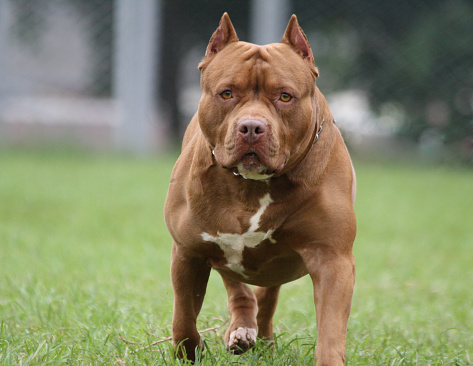
The Pit Bull Terrier is a breed that has long been associated with strength, loyalty, and courage. Originally bred for bull-baiting and later for dog fighting, Pit Bulls have earned a reputation for being aggressive, but this is often due to misconceptions and irresponsible ownership. In reality, when raised in a loving and structured environment with proper training and socialization, Pit Bulls can be affectionate, gentle, and incredibly loyal companions.
Pit Bulls are highly energetic and require regular exercise to keep them happy and healthy. They are also known for their intelligence and willingness to please, making them relatively easy to train. However, they can have a stubborn streak and may require an experienced owner who can provide firm but positive guidance. Socialization from a young age is crucial to ensure they are comfortable around other dogs and people, as their protective nature can lead to aggression if not properly managed.
Despite their tough appearance, Pit Bulls are often very affectionate with their families, including children, and can be great family pets when raised responsibly. They are also known for their high pain tolerance and resilience, which, when coupled with their loyalty, makes them excellent working dogs in some specialized roles. With proper training, exercise, and socialization, a Pit Bull can be a loving and devoted companion.
2. American Bulldog
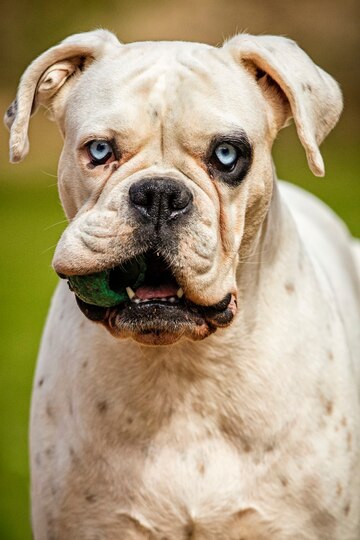
The American Bulldog is a strong, muscular breed with a gentle and affectionate nature. Originally bred for working purposes such as guarding and hunting, they have become beloved family companions. Their protective instincts are strong, and they are often very loyal to their families. However, due to their size and strength, they require responsible ownership and firm, consistent training. Without this, they can become territorial and overly protective, which can lead to aggression.
Training an American Bulldog requires patience and consistency. They are intelligent dogs, but their independent nature can sometimes make them stubborn. Early socialization and positive reinforcement are important to help them become well-adjusted and friendly toward strangers and other animals. Without proper socialization, their strong guarding instincts may lead to problems with aggression toward unfamiliar people or animals.
Despite their tough, muscular exterior, American Bulldogs are affectionate and love to be around their families. They are known for their playful nature, particularly with children, and can form strong bonds with their owners. Their loyalty and protective instincts make them excellent guard dogs, but when raised in a loving and well-structured environment, they are also gentle, loving family companions.
1.Chihuahua
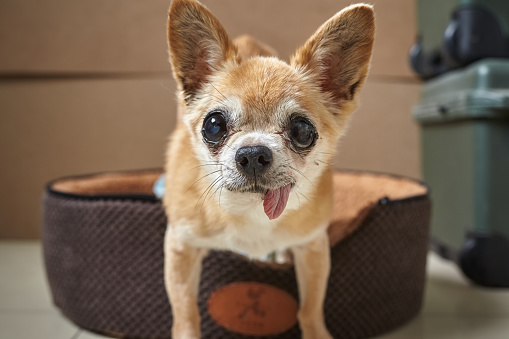
The bitchy Chihuahua may not be as tall as some of the other dogs on this list, but that shouldn’t make you underestimate how fierce they are. This stage dog can occasionally be treated more like an accessory than a beast, importing, on average, less than 10 pounds. They usually have a deer or apple head on them, but the type of head doesn’t really make them more or less aggressive. If proper boundaries, obedience training, and socialization are not given to this strain, they can easily become largely territorial. When someone calls, Chihuahuas will never hesitate to snap or suck. Probably, this gesture is a way to keep the tone consistent. When you’re as chubby as a Chihuahua, you need to know how to defend yourself and maintain your position. However, possessors who disrupt this instinct make it more complicated, which leads to unjustified aggression.
The Chihuahua probably injures more mouthfuls per strain than almost any other dog breed, with the exception of the Pitbull. This has little to do with their genetics. It has a lot more because many parents of young children do not address issues before they arise. Chihuahua hostility will every now and again go unbounded or to be sure energized in light of the fact that owners guess it’s ” adorable. “As a result, you keep a small dog that is just as aggressive as a stressed-out Pitbull or Rottweiler.

